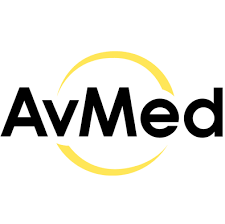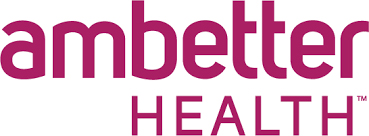Depression is a complex and often deeply personal experience, affecting individuals in many different forms. While medications and talk therapy remain cornerstones of treatment, many people do not respond fully to these options or cannot tolerate their side effects.
Transcranial Magnetic Stimulation (TMS) is an innovative, evidence-based treatment that provides a non-invasive, drug-free alternative for various depressive disorders. We use TMS to help patients achieve measurable improvement, even when other interventions have fallen short. all of South Florida.
Great practice! First impression means a lot and my first point of contact was with Anthony. He seems to do everything there and he’s great at his job. I wasn’t really sure what I was doing and Anthony walked me through the process. This made me feel great going into my meeting with the doctor. The Doctor asked all the right questions and his ideas and the prescription he offered was a game changer. Highly recommended!
– Doug R.
TMS for Different Types of Depressive Disorders
At NeuroHealth Treatment Centers, we specialize in TMS therapy for individuals diagnosed with various types of depression. Each depressive disorder presents differently and may require tailored care.
Below is a deeper look at how TMS may support recovery across diagnostic categories:
Major Depressive Disorder (MDD)
Major depressive disorder is a serious psychiatric condition characterized by persistent low mood, anhedonia (loss of interest in pleasurable activities), changes in appetite and sleep, and thoughts of worthlessness or suicide. MDD affects approximately 21 million adults in the U.S. each year.
TMS is FDA-approved for treatment-resistant major depressive disorder, meaning patients who have not responded to at least one or more antidepressants. Research shows that TMS can significantly reduce symptom severity by activating hypoactive regions of the prefrontal cortex, helping restore emotional regulation and executive function.
Common symptoms of major depressive disorder include:
- Thoughts of death or suicide
- Persistent sadness or low mood
- Loss of interest or pleasure in activities
- Fatigue or low energy
- Difficulty sleeping or oversleeping
- Appetite changes (weight loss or gain)
- Feelings of worthlessness or guilt
- Difficulty concentrating or making decisions
Persistent Depressive Disorder (Dysthymia)
Persistent depressive disorder is a chronic form of depression lasting two years or longer, often presenting with symptoms that are less severe than MDD but more enduring. Patients often describe feeling “low” or “flat” most of their lives.
TMS offers a neuromodulatory approach to shift long-standing dysfunctional patterns in brain activity. While not yet specifically FDA-approved for dysthymia, clinical experience and emerging studies suggest that patients with chronic low-grade depression may also benefit from TMS.
Common symptoms of persistent depressive disorder include:
- Changes in sleep or appetite
- Depressed mood most of the day, more days than not, for two years or more
- Low self-esteem
- Fatigue or low energy
- Poor concentration or difficulty making decisions
- Feelings of hopelessness
Start Your Journey Today
Mental health struggles don’t define you—your path to healing begins now.
powered by ZocDoc
Seasonal Affective Disorder (SAD)
SAD is a subtype of depression triggered by seasonal changes, especially reduced daylight during fall and winter. Though light therapy is often the first-line intervention, TMS can be used as a second-line or adjunctive treatment for those who do not respond fully to light therapy alone. By stimulating the dorsolateral prefrontal cortex, TMS may help reset disrupted circadian rhythms and improve mood.
Common symptoms of seasonal affective disorder include:
- Depressed mood during specific seasons (typically fall and winter)
- Low energy and fatigue
- Increased need for sleep
- Weight gain and carbohydrate cravings
- Social withdrawal (“hibernation” behavior)
- Difficulty concentrating
Premenstrual Dysphoric Disorder (PMDD)
PMDD is a severe, hormone-related mood disorder that occurs during the luteal phase of the menstrual cycle and resolves with menstruation. It is marked by intense mood swings, irritability, anxiety, and depressive symptoms.
Because TMS does not rely on altering hormone levels or affecting systemic neurotransmitter activity, it offers a non-pharmacological option for managing mood symptoms in patients who are sensitive to medications or seeking complementary care. More research is underway, but case reports suggest a role for TMS in regulating mood reactivity tied to hormonal fluctuations.
Common symptoms of premenstrual dysphoric disorder include:
- Severe mood swings
- Irritability or anger
- Depressed mood or feelings of hopelessness
- Anxiety or tension
- Decreased interest in usual activities
- Fatigue or lack of energy
- Changes in sleep and appetite
- Physical symptoms (breast tenderness, bloating, joint or muscle pain)
Postpartum Depression
Postpartum depression can affect up to 1 in 7 mothers and is often underdiagnosed and undertreated. Antidepressants may not be preferred due to concerns about nursing, sedation, or emotional blunting.
TMS is an ideal candidate for treating postpartum depression because it is non-invasive, medication-free, and does not transfer through breastmilk. Clinical studies, including pilot trials at academic medical centers, have shown that TMS can reduce postpartum symptoms while allowing new mothers to remain fully engaged with their infants and daily routines.
Symptoms of postpartum depression may include:
- Intense sadness, anxiety, or emptiness
- Loss of interest in baby or bonding difficulties
- Sleep disturbances unrelated to infant care
- Feelings of guilt, worthlessness, or inadequacy
- Difficulty thinking, concentrating, or making decisions
- Thoughts of harming self or baby (in severe cases)
Disruptive Mood Dysregulation Disorder (DMDD)
DMDD is typically diagnosed in children and adolescents and is characterized by chronic irritability and severe temper outbursts that are disproportionate to the situation. While TMS is not yet FDA-approved for individuals under 18, several clinical trials are exploring its safety and efficacy in adolescents with treatment-resistant depression and mood dysregulation. Early results are promising, and future protocols may include TMS as a viable option for adolescent mood disorders, pending further regulatory review.
Common symptoms of disruptive mood dysregulation disorder include:
- Onset typically before age 10
- Severe temper outbursts (verbal or behavioral) that are out of proportion to the situation
- Outbursts occurring three or more times a week
- Chronic, persistently irritable or angry mood between outbursts
- Symptoms present for 12 months or more
Personalized Treatments, Backed by Science
We specialize in innovative, non-invasive treatments that offer real hope:
What Is TMS Therapy for Depressive Disorders?
TMS, or Transcranial Magnetic Stimulation, is an FDA-approved treatment that uses magnetic pulses to stimulate underactive regions of the brain associated with mood regulation. These pulses are delivered through a treatment coil placed on the scalp. No anesthesia, no medications, and no downtime are required. Each session typically lasts 20 minutes, with most patients undergoing treatment five days per week for four to six weeks.
TMS has been studied extensively and is supported by numerous clinical trials demonstrating its safety and effectiveness in reducing symptoms of depression. It is especially beneficial for patients with treatment-resistant depression, or those who have tried at least one antidepressant without sufficient relief.
Key benefits of TMS for depressive disorders include:
- Drug-free and non-invasive care
- No systemic side effects like weight gain, fatigue, or sexual dysfunction
- Long-lasting symptom relief for many patients
- Can be safely used alongside talk therapy or other non-drug interventions
TMS is transforming how we approach mood disorders, offering new hope for patients across diagnostic categories.
Insurance Coverage and Affordability
TMS therapy is covered by most major insurance providers, including Medicare and many commercial plans, when prescribed for treatment-resistant depression. At NeuroHealth Treatment Centers, our team will assist with verifying your insurance benefits and obtaining any necessary prior authorizations. We also offer flexible financing options and payment plans for patients who are uninsured or prefer to pay out of pocket.
If you have questions about affordability, we encourage you to contact our office directly for personalized assistance.
Making Treatment Accessible
Covered by Most Insurance Plans











Understanding TMS Side Effects
TMS is generally well-tolerated and associated with a low risk of side effects. Because it does not involve medication or sedation, it avoids many of the systemic effects linked to antidepressants, such as weight gain, sexual dysfunction, or gastrointestinal issues.
Common, short-term side effects may include:
- Mild scalp discomfort or tingling at the treatment site
- Headache or fatigue, especially in the first few sessions
- Lightheadedness (rare)
These effects are usually mild and resolve on their own shortly after treatment. TMS does not cause memory loss or cognitive impairment, and patients are able to return to normal activities immediately following each session.
Is TMS Treatment for Depression Right for You?
To determine if TMS is right for you or your patient, schedule a consultation with our expert clinical team. NeuroHealth Treatment Centers provides comprehensive evaluations and collaborate closely with primary care providers and psychiatrists to ensure safe, integrated care.
Call 954-417-7575 or book online to get started.
Start Your Journey Today
Mental health struggles don’t define you—your path to healing begins now.
powered by ZocDoc
Are You a New Patient?
Book your complimentary in-office evaluation now. We accept most major insurance plans. Financing and alternative payment options available.

Are You a Healthcare Provider?
Learn how you can support your patients with NeuroHealth Treatment Centers.



